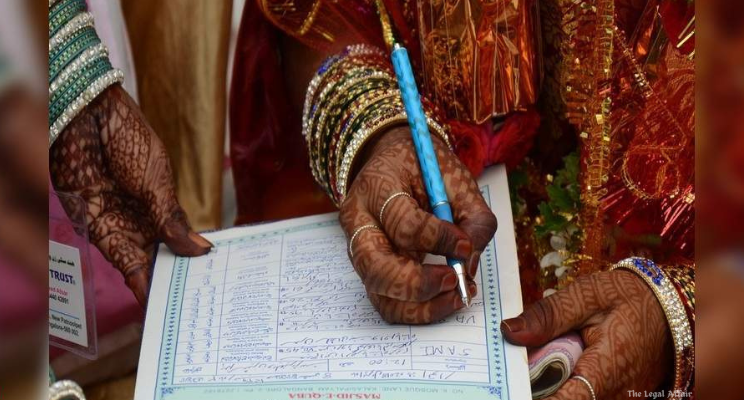Team Clarion
BENGALURU – The Karnataka High Court has raised questions over the authority of the state’s Waqf Board to issue marriage and divorce certificates to Muslim couples. The court was hearing a Public Interest Litigation (PIL) challenging a government order (GO) issued on August 30, 2023, that empowered the Waqf Board and its district officers to issue marriage certificates.
The bench, while reviewing the matter on Monday, expressed concern over the legal standing of the Waqf Board in this regard. “The Waqf Board is dealing with marriage and divorce certificates? This is a very serious matter under the law,” the court observed.
The PIL was filed by Alam Pasha, who sought the cancellation of the GO issued by the Under Secretary of Minorities, Waqf, and Hajj Department. According to the petition, the Waqf Act primarily deals with movable and immovable properties and does not contain provisions that allow the Waqf Board to issue Nikah Namas (marriage certificates). The petitioner contended that the board had exceeded its legal jurisdiction by taking on such responsibilities.
In response to the petition, the court had already stayed the government order last year, preventing the Waqf Board from issuing marriage certificates. However, during the latest hearing, the court granted additional time for the state government to file its response but made it clear that it would not permit unnecessary delays. The next hearing has been scheduled for February 19.
The matter has sparked discussions among legal experts and community members, with some questioning the state’s rationale behind authorizing the Waqf Board for such functions. “Marriage and divorce matters should be handled by legally recognized authorities. The Waqf Board’s role is restricted to managing religious endowments and properties, not issuing marital documentation,” said a legal expert familiar with the case.
With the upcoming hearing, the court’s final stance on whether the Waqf Board retains any legal authority to issue these certificates remains to be seen. The case is expected to set a precedent regarding the role and legal boundaries of the Waqf Board in Karnataka and beyond.

